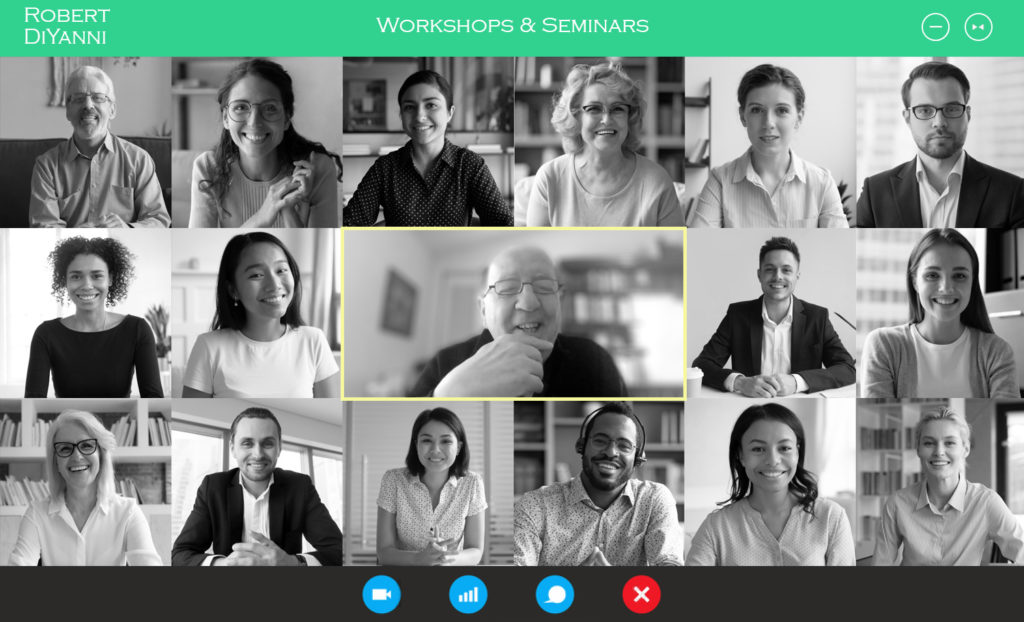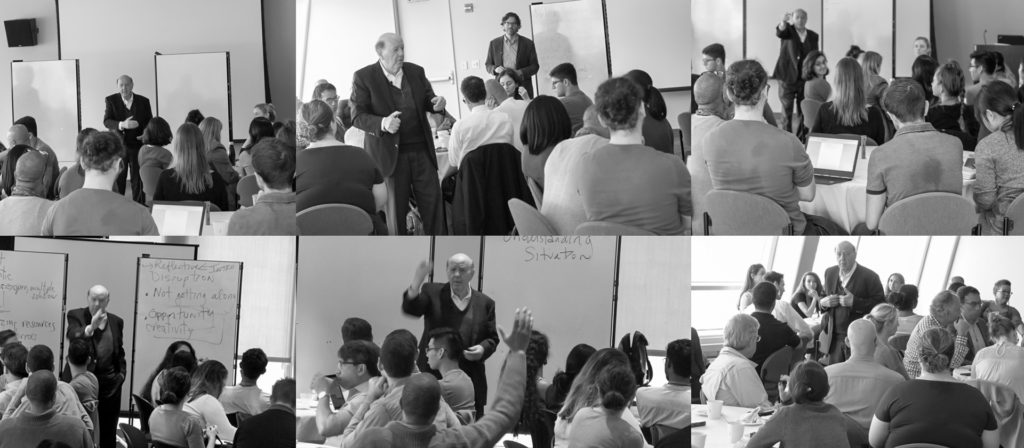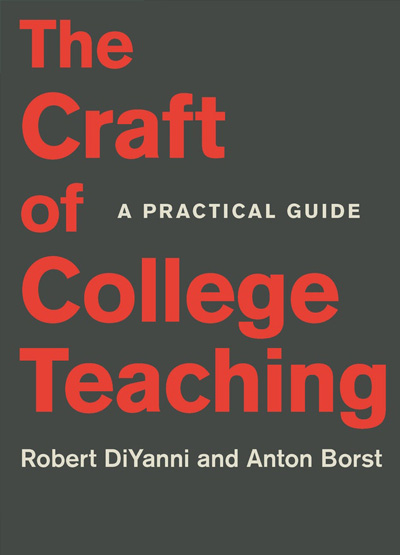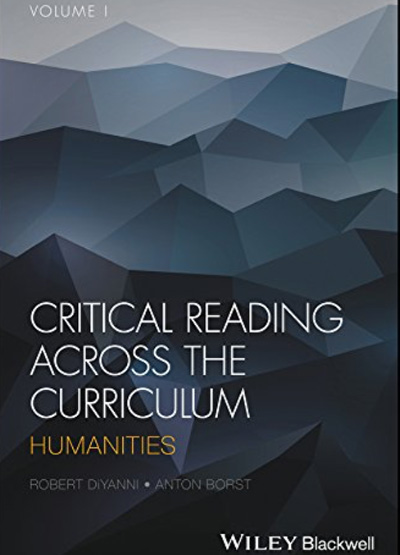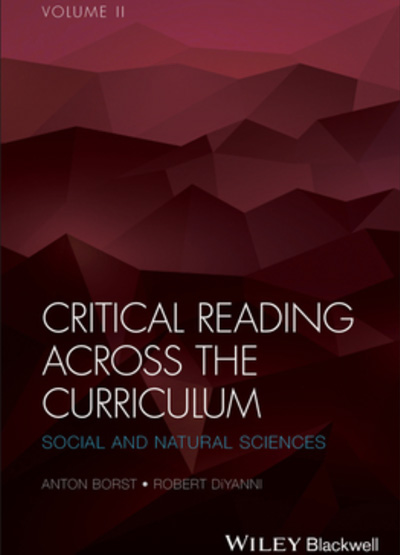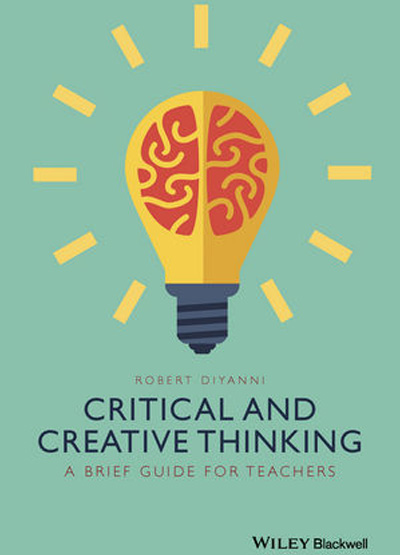Pedagogy Workshops and Seminar(s)
The following workshops can be offered individually in time spans of 60, 75, and 90 minutes. Workshops can also be combined for half-day, full-day, and longer seminars.
- Motivating Student Learning
Motivation is critical for all learning. Without a real need or desire to learn something, whether acquiring information, developing a skill, or deepening understanding, learning simply does not occur. Motiveless learning is shallow learning, which does not take root as enduring knowledge. In this workshop, we will consider what motivates students to learn, and how we can invite them, even incite them, to engage purposefully with the work of our courses. Participants can expect to come away with practical strategies to motivate their students’ learning, in part by considering what motivates their own learning, and in part by considering what learning science research says about motivation.
- Syllabus and Course Design Essentials
A syllabus is one of the first things to consider when developing a new course or revising one formerly or frequently taught. A syllabus is frequently taken for granted and often not given the full consideration it merits. This workshop begins by asking fundamental questions: just what is a syllabus, anyway? What are its purposes? How might a syllabus be conceptualized? What metaphors might we imagine for a syllabus and what do they imply about the purpose and nature of our courses and our teaching practices? Through considering these and related questions, participants can expect to freshen and deepen their thinking about the ways a syllabus serves not only to introduce a course and its requirements, but also as ways to contextualize a course and affirm its value for students in their personal as well as their academic lives.
- The Power of Active Learning
“Active Learning” is a broad term for an approach to teaching that requires students to demonstrate their learning through doing things, making things, and demonstrating their understanding. Active learning provides an alternative to more passive forms of knowledge acquisition, such as listening to lectures and copying information from slides, books, boards, or screens. Active learning shifts the focus from teachers to students. Research confirms that when students take an active role in their learning, they improve their conceptual understanding, critical thinking, and interpersonal skills. In this workshop we will consider the benefits and the challenges of using active learning pedagogical strategies, including gaining student buy-in for active learning. Participants can expect to come away with practical and effective active learning strategies to employ in their classroom teaching.
- Effective Discussion-based Teaching
In college and university seminars and other small classes, teaching often takes the form of discussion, which provides a useful complement and alternative to lecturing. Leading productive discussion classes requires both preparation and practice. Effective discussions occur when they possess an explicit, clearly-defined purpose, and when they are summarized and assessed. Good discussions, moreover, are grounded in questions that generate productive thinking for students and instructors alike. Like other active-learning pedagogical strategies, discussion-based teaching needs to be goal directed and learner centered. In this workshop we will consider the benefits and limitations of discussion, along with challenges in its use. Participants can expect to derive clear principles and effective practices for generating and sustaining discussion in their classes, including techniques for responding to students and having them engage in productive cross-talk with one another.
- Successful Lecturing
The lecture has a long and distinguished history in university life and beyond. Originating in ancient Greece and wildly popular during the European middle ages, the lecture persists in university education worldwide as the primary mode of instruction. In this workshop we will consider the benefits and drawbacks of the lecture, including how to lecture effectively in differing academic environments, across disciplines, schools, and programs. Participants can expect to derive clear principles of and purposes for lecturing, along with effective lecturing practices, among them lecturing as storytelling and lecturing as identifying and resolving problems. An additional consideration will be how to make lectures engaging for students, including strategies for developing interactive lectures.
- Making Learning Stick
One of the biggest challenges confronting teachers and their students is not learning per se, but making learning last beyond the immediate present, beyond midterm and final exams, beyond the semester—making learning endure for the long haul. We want our students to leave our courses having learned for good what we have to teach. In this workshop, we will consider the obstacles to long-lasting learning, including cramming, along with specific strategies to overcome that and other unproductive learning habits. Participants can expect to come away with the key principles for enduring learning and successful practices for the classroom and beyond that are grounded in recent learning science.
- Embarrassment & Learning
One of the greatest impediments to learning is fear, and one of students’ greatest fears is the fear of embarrassment. Students are often afraid to expose their weak or limited understanding. They are afraid of failure, of not understanding key concepts, even perhaps of feeling they don’t belong in college at all. Embarrassment and its attendant emotional baggage cut close to students’ sense not just of what they know and understand, but of who they are. In this workshop, participants will explore the social aspects of teaching and learning, using embarrassment and fear as springboards to consider other related impediments to student learning. Participants can expect to come away with a fuller understanding of the emotional elements of learning, along with strategies to overcome the challenges that embarrassment and other socio-emotional aspects of classroom experience bring.
- Providing Effective Explanations
One of the most essential of all teaching practices is explanation. Much of what we do as teachers requires explaining. But just what are we doing when we explain something to students? What is explanation, anyway? In this workshop, we will explore these fundamental questions, comparing common elements of explanation across disciplines (and identifying particular explanatory aspects of different disciplines). Participants can expect from this interactive workshop analysis of what constitutes good explanations, along with specific examples and strategies for providing effective explanations in their teaching.
- Assessment & Grading
Assessment is not grading, and grading is not assessment—though the two are often conflated and sometimes confused. Instead of seeing these two forms of evaluation as the same, we need to distinguish between them. When we grade students’ work, we evaluate their performance against a standard that can be explained with a rubric. When we assess a student’s work, we evaluate its level of proficiency as a work in progress or development. Grades are final in a way that assessments are not. In this workshop, we will consider why we grade, what we grade, and how we grade. We will explore grading criteria, rubrics, and challenges. And we will identify some useful assessment tools to measure student understanding. Participants can expect to gain a fuller understanding of the nature and purpose of assessment and grading, along with some practical strategies for using these evaluative tools effectively.
Previous LECTURES, WORKSHOPS, AND CONFERENCE TALKS (Selected Items)
- One hundred + workshops on pedagogy for the NYU educational community. More than a dozen topics including Syllabus and Course Design, Discussion-based Teaching, Writing to Learn, Making Learning Last, Assessment and Grading. April 2014-April 2019.
- Critical and Creative Thinking. A five-day seminar for faculty who teach at institutions belonging to the Faculty Resource Network. New York University. June 9-13, 2019.
- What is Critical Reading? Workshop at Eastern Connecticut State University. October 23, 2018.
- Critical Reading and Critical Thinking. A five-day seminar for faculty from the NYU Faculty Resource Network. San Juan Puerto Rico. January 9-13, 2016.
- Reading Rhetorically: An Approach to Critical Reading. Xavier High School. December 8, 2015.
- Making it Stick: Strategies for Effective Teaching and Learning. English Language Schools Association (ELSA), Paris, France. March 18, 2015.
- Ethical Thinking: Challenges and Dilemmas. English Language Schools Association (ELSA), Paris, France. March 18, 2015.
- Formulating Creative Questions for the OIB Literature Examination. Lycée Rochembau. Washington DC. January 21, 2015.
- Best Practices in College Teaching. Seminar for new faculty from NYU Shanghai. New York University, Washington Square. October 20-24, 2014.
- Teaching Critical and Creative Thinking. Saint Michael’s University School, Victoria BC, October 6, 2014.
- Ethical Thinking. Saint Michael’s University School, Victoria BC, October 7, 2014.
- Thinking Through Literature. AP Annual Conference, Philadelphia, July 12, 2014.
- Reading Novel Openings. AP Annual Conference, Philadelphia, July 10, 2014.
- Fostering Critical and Creative Thinking. NYU College of Dentistry, May 12, 2014.
- Teaching the Essays of George Orwell. AP Conference, Toronto, Canada, April 5, 2014.
- Analyzing Texts, Analyzing Images. English Language Schools Association (ELSA), Paris, France. March 28, 2014.
- Practicing Critical and Creative Thinking. NYU Faculty Resource Network Symposium, Miami, FL, November 22, 2013.
- Getting Students Thinking: Possibilities and Provocations. New York University, Department of Media, Culture and Communication, Steinhardt School of Education, September 10, 2013.
- An Approach to Teaching Literature. Trinity Christian School, Port Hope, Canada, August 29, 2012.
- Seminar on Critical and Creative Thinking for College and University Faculty, co-presented with John Chaffee. NYU Faculty Resource Network, New York City, June 11-15, 2012.
- Critical and Creative Thinking in Practice, Keynote Address and Workshop. Pace University, Dyson College Conference, White Plains, NY, April 13, 2012.
- An Approach to Critical and Creative Thinking. Morristown Beard School Professional Development Day, April 9, 2012.
- An Approach to Teaching Poetry. AP Conference, Toronto, March 31, 2012.
- Why We Need Critical and Creative Thinking, Keynote Address. Scarsdale and Independent Schools Joint Conference, April 30, 2011.
- Writing the Essay: An Introduction to the NYU Expository Writing Program. AP Conference, Toronto, April 9, 2011.
- Six Thinking Hats: An Approach to Critical and Creative Thinking. Marc Garneau Collegiate Institute, Toronto, April 8, 2011
- Edward de Bono’s Lateral Thinking: An Introduction. English Language Schools Association (ELSA) Conference, Paris, March 23, 2011.
- How to Think Like Leonardo da Vinci. Central and Eastern European Schools Association (CEESA) Conference, Budapest, March 18, 2011.
- Interdisciplinary Teaching and Learning: What It Is and How To Do It. Advanced Placement Conference, Winnipeg Canada, October 10, 2010.
- The Poetry of Epiphany: Poems of Surprise and Wonder. Advanced Placement Annual Conference, Washington, DC, July 16-19, 2010. .
- Literature: What to Teach, How to Teach It, and Why. Pasadena School District, Pasadena (Houston) Texas, January 2010.
- Parables as Provocations. Talk to high school students, faculty, and administration. Chapel Talks Series, Westminster School, Simsbury, CT, October 2009.
- An Approach to Teaching Nonfiction. Workshop for AP teachers. Toronto, April 2009.
- Developing Thinking Skills. Workshop for international schools heads, Mediterranean Association of International Schools, Madrid, April 2009.
- Engaging Students through Poetry. English Language Schools Association, Paris, March 2009.
- Critical and Creative Thinking Across the Media. Five-day seminar for college and university faculty, jointly led with William Costanzo. NYU Faculty Resource Network, June 9-13, 2008.
- Teaching Critical Thinking through Ethical Dilemmas. Central and Eastern European Schools Association (CEESA) Teachers Conference. Bucharest, March 2008.
- An Approach to Teaching Drama. AP Annual Conference, Las Vegas, July 2007.
- An Approach to Teaching Fiction. AP Annual Conference. Orlando, July 2006.
- Thinking Critically About Images. Advanced Placement Annual Conference. Orlando, July 2006.
- Poetry: What to Teach, How to Teach It, and Why. AP Conference, Toronto, April 2006.
- Thinking (and Teaching) with and through Parables. Alliance for International Education Conference. Dusseldorf, October 2004.
- Teaching Critical Thinking through Literature. ELSA Teachers Conference. Paris, March 2004.
- Teaching the Poems of Billy Collins. European Council of International Schools Conference. Hamburg, November 2003.
- Teaching the Exploratory Essay. ELSA Conference of French Teachers of English. Paris, March 2003.
- Teaching the Poetry of Emily Dickinson. European Council of International Schools Conference. Berlin, November 2002.
- Teaching the Poetry of Seamus Heaney. European Council of International Schools Annual Conference. The Hague, November 2001.
- Art and Literature: The Renaissance. Four joint lectures with Janetta Benton. The Metropolitan Museum of Art Concerts and Lectures, January 2001.
- Teaching the Poetry of Robert Frost. European Council of International Schools Conference. Nice, France, November 2000.
- Romanticism in the Classroom: Interdisciplinary Approaches. European Council of International Schools Conference. Nice, November 2000.
- Making Connections: Writing, Music, and Dance: Composing and Performing. NCTE and NATE Conference on Global Literacy. Utrecht, August 2000.
- Interdisciplinary Teaching: Literature in the Context of Art and Music: Modernism Near East South Asia Council of Overseas Schools. Bangkok, March 2000.
- Art and Literature: One Thousand Years. Four joint lectures with Janetta Benton. The Metropolitan Museum of Art Concerts and Lectures, January 2000.
- Teaching Shakespeare’s Sonnets. European Council of International Schools. Nice, Nov. 1999.
- Writing Progressions: Creating Sequenced Writing Assignments. European Council of International Schools. Nice, November 1999.
- Discourse Analysis: Reading Non-fiction. University of Madrid Complutense, November 1997.
- Working with Visual Texts in a Writing Course. Brigham Young University, August 1997.
- English Literature Workshop for AP Teachers of English. University of Heidelberg, 8/1987.
- Some Connections Between Ancient Chinese Poetry and Modern American Poetry. Conference on Science and the Arts. Beijing 1997.
- Teaching Grammar in the Context of Writing. Florida Atlantic University. March 1996.
- Transfiguring the Personal into the Academic: Writing Progressions. Southeast English Conference of Two-year Colleges. Atlanta, January 1996.
- On Language and Writing: The Power of Connotation. Armstrong State College, October 1995.
- Writing About Art: Working with Vincent van Gogh's Starry Night. Southeast English Conference of Two-year Colleges. Jacksonville, February 1995.
- Teaching Poetry. DeKalb Community College. September 1994.
- The Practice of Teaching: Defamiliarizing the Classroom. Valencia Community College. February 1994.
- Teaching Literature and the Arts. Florida International University. February 1994.
- On Interpretation. Pace University Weekend Seminar. October 1992.
- The Experience of Reading: Wolfgang Iser's Theory and Practice. Conference on College Composition and Communication. March 1992.
- An Approach to Learning: Response, Interpretation, and Evaluation in Interdisciplinary: Contexts. Conference on Post-Secondary Pedagogy. March 1991.
- The Reader-Response Criticism of Louise Rosenblatt and David Bleich. Conference on College Composition and Communication, March 1991.
- Metaphors of Reading. University of New Hampshire, October 1990.
- Is There a Truth About the Text? Mercy College, April 1990.
- The Essay as Conversation. College Composition and Communication, March 1990.
- Fictitious Facts in the Essays of Richard Selzer. Conference on College Composition and Communication, March 1988.
- Asking Questions About Texts. Virginia Commonwealth University, April 1987.
- Richard Lanham and the Teaching of Writing. Conference on College Composition and Communication, March 1985.
- Science Fiction and Literary Art: LeGuin's The Left Hand of Darkness. Northeast Modern Language Association Annual Meeting, April 1983.
- Reading into Writing. National Council of Teachers of English Fall Conference, November 1982.
- Wordsworth and the Teaching of Writing. Conference on College Composition and Communication, March 1982.
- Lateral Thinking as an Aid to Invention. 4 Cs Conference on College, March 1981.
- Aids to Invention: Synectics and Conceptual Blockbusting. Mid-Hudson Modern Language Association Annual Meeting. November 1979.
- Writing and Seeing: Perception and Some Implications for Composition. Conference on College Composition and Communication, March 1978.
—Michael Hogan, Emeritus Humanities Chair, American School Foundation of Guadalajara. Author of Teaching from the Heart
—Marla Wolf, New York University, Graduate School of Art and Science
—Todd Cherches, adjunct professor of leadership at NYU and Columbia University, and author of VisuaLeadership: Leveraging the Power of Visual Thinking in Leadership and in Life
—William V. Costanzo, SUNY Distinguished Teaching Professor, and author of World Cinema Through Global Genres; When the World Laughs: Film Comedy East and West
—Trevor Packer, Senior Vice President, AP Program, The College Board
We were supremely fortunate to have Bob DiYanni present at our ELSA France Teacher Development Days in Paris for those teaching native-standard English in bilingual, and international schools, and French schools with English-language sections. Enthusiastic participants flocked to his warm, lively, engaging sessions. We marvelled at the range of topics he presented, from critical reading and thinking, through rhetoric and composition, and across literary genres, a spectrum of authors and more. We admired his wisdom, enjoyed his wit and humor, learned from his practical suggestions for engaging students to make their learning stick. His teaching of what to teach, how to teach, and why is a wonder.
—Nancy Willard-Magaud, Emeritus Inspectrice Générale Déléguée, American Option, French Baccalauréat, Special consultant, ELSA France ( English-Language Schools Association, France), Emeritus Director, American Section, Lycée International, St. Germain-en-Laye, France
A Sampling of My Valued Clients
I’m proud to have worked with such a wide range of incredible organizations, across the country and around the globe. Following is a list of them (in alphabetical order).
List of Valued Clients
Alliance for International Education
Advanced Placement Program, US
Advanced Placement Program, Canada
American International School, Dubai
American Overseas School of Rome
Armstrong State College
Association of American Colleges and Universities
B
Bedford NY, Public Library
Beijing Foreign Studies University
Brigham Young University
C
Central and Eastern European Schools Association
City University of New York
Conference on College Communication and Composition
D
DeKalb Community College
Department of Defense Dependents Schools (DoDDS)
E
Eastern Connecticut State University
English Language Schools Association, France
European Council of International Schools
F
Florida Atlantic University
Florida International University
G • H
Houston, Texas Public Schools
I • J • K • L
Lycée Francais de New York, NYC
Lycée Rochambeau, Washington DC
Lycée St. Germain en Laye, France
M
Marc Garneau Collegiate Institute, Toronto, Canada
Mediterranean Association of International Schools
Mercy College
Metropolitan Museum of Art
Modern Language Association
Morristown Beard School
National Association of Independent Schools
National Association of Teachers of English
National Council of Teachers of English
New York School for the Deaf (Fanwood), White Plains, NY
Near East South Asia Council of Overseas Schools
New York University, College of Arts and Science
NYU College of Dentistry
NYU Faculty Resource Network
NYU School of Professional Studies
NYU Steinhardt School of Education
NYU Tandon School of Engineering
O
Office of Overseas Schools, US Department of State
P
Pace University, College of Arts and Sciences
Pasadena School District, Pasadena, TX
Pound Ridge, NY Public Library
Q • R • S
Saint Michael’s University School, Victoria BC, Canada
St. Joseph’s College, Long Island NY
Scarsdale Public Schools, Scarsdale, NY
Southeast English Conference of Two-Year Colleges
T
Trinity College School, Port Hope, Canada
U
Union College
University of Guadalajara
University of Madrid Complutense
University of North Caroline, Chapel Hill
University of New Hampshire
V
Valencia Community College
Virginia Commonwealth University
W
Westminster School, Simsbury, CT
X • Y • Z
Xavier High School, NYC
Other books
Get in touch
with Robert DiYanni
